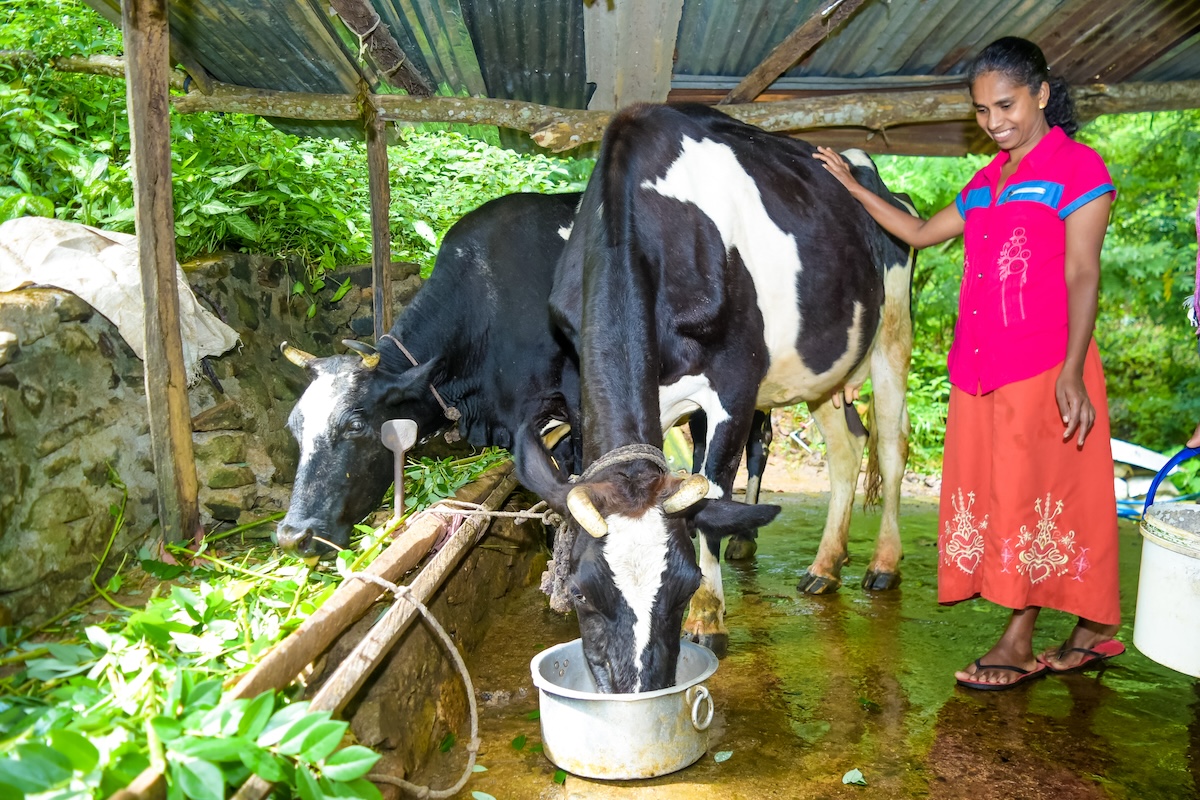Karunawathi Jayasundara, a dairy farmer in the ‘Feminization of Formal Dairy Supply Chain for Economic Empowerment of Women Farmers’ project in Sri Lanka
Breaking the cycles that constrain women is crucial to realizing the full potential of agriculture.
Neha, Gender Lead at Solidaridad Asia
Even for their outsized contributions in agriculture, women are often overlooked. This inequality stems from various factors. First, most government policies recognise farmers based on land ownership. Despite producing up to 80 percent of food in developing countries, less than 1 in 5 landholders worldwide are women. Secondly, the lack of transport infrastructure in low- and middle-income countries restricts the mobility of women, a problem compounded by the prevalence of regressive social norms.
Most importantly, public and private procurement systems are non-inclusive (just 1 percent of the $11 trillion spent annually on public procurement is awarded to women-owned businesses; data for private sector spending is not available). This purposeful sidelining limits recognition and investment in women.
Solidaridad Asia takes a Feminization of the Agricultural Supply Chain approach that challenges the barriers to women’s advancement, and uses the market as a lever to invest in women, economically and socially. It begins by ensuring that in the entire supply chain, from production to retail, there is a deliberate effort to embrace gender diversity and promote the inclusion of women at every stage.
Agriculture not only relies on the contributions of women, it is also the primary livelihood for many working women and an important source of employment. There are several compelling reasons to encourage greater formal participation of women in agricultural supply chains.
- Improved food security: Giving women access to the same resources and education as men could increase production on women’s farms by up to 30 percent, potentially eliminating hunger for 150 million people.
- Good for the economy: Closing the gender gap in agriculture, as per the Food and Agriculture Organisation, would produce significant gains for society by increasing agricultural productivity, strengthening value chains, reducing poverty and hunger, and promoting economic growth. An increasingly strong body of evidence confirms that gender-smart solutions in agribusiness can increase the sector’s productivity and profitability and lead to stronger, more integrated value chains.
- Good for businesses: Reliable, consistent suppliers are critical for companies. Women farmers – as we have seen in our dairy programme in Bangladesh – have demonstrated higher consistency in supply due to their acquired behavior over time. Their active engagement in core agricultural activities allows for better implementation of good practices, ensuring high-quality produce.
- Good for sustainable agriculture: Women are often better at managing natural resources and can make more sustainable and efficient use of land, water, and other resources. When women are included in agricultural decision-making, they can contribute to more sustainable farming practices and help protect the environment.
- Helps with SDG and ESG reporting: Working with women in the supply chain strengthens brand reputation and customer loyalty through ethical sourcing and compliance with environmental and social standards.
Breaking the cycles that constrain women is crucial to realizing the full potential of agriculture. When markets recognize the role of women in agriculture and invest in them, women can earn better, gain financial independence, and improve their economic status – empowering themselves socially and psychologically. This corresponds to an increased investment in healthcare, nutrition, and education that benefits families and communities.
Our pilots in Bangladesh, India and Sri Lanka have demonstrated that the private sector has the potential to accelerate progress for women in agriculture, particularly in low- and middle-income countries. It’s just a matter of getting started, taking just one step towards gender inclusivity in sourcing in the supply chain.

